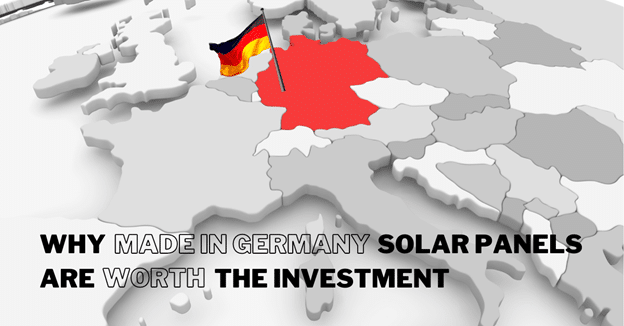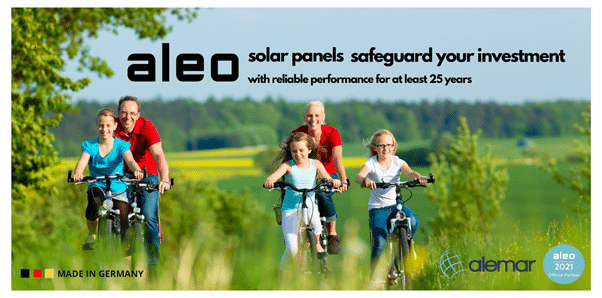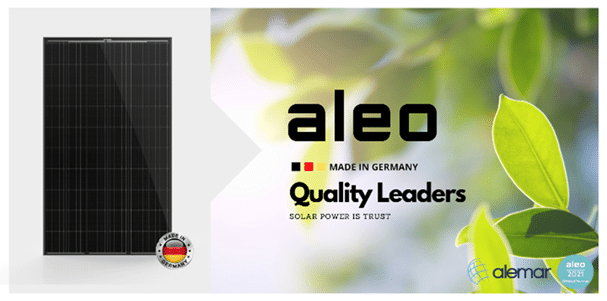
As it stands today, very few panel manufacturers actually produce solar modules in Germany, although many more claim some kind of German “connection” – that comes in the form of being an office, a brand name or something else. The truth is, most manufacturers are located in China or other Asian countries, taking advantage of the incentives available in that part of the world.
This practice raises the question: why do they include the German connection if there’s no such real input in the finished product? The answer is simple; it’s the quality universally attributed to these specific products, only in this case, many are not really made in Germany at all.
Be careful who you give your trust to
aleo is an open book and considered as one of the most trustworthy manufacturers globally. With one factory in Germany, the brand is able to maintain 100% control.

The Germans are world-famous for producing some of the world’s best quality products by mastering reliability and durability in the finished product. This applies to solar panels as well. It’s also a fact that quality always comes at a cost, and that is why real German-made solar modules are priced higher than Asian-manufactured PV panels, and are well worth it.
Think of Mongrel or R.M. Williams boots. Expensive? Perhaps, but what are you comparing them to? Considering you can use them for decades with a bit of care, re-sole them if needed, you’re able to use them for years on end. And that’s a well-worth investment – pay once, enjoy long-term.
Solar panels, as most products, are defined by quality. The difference is that for solar to make sense, quality and consequently long-term high efficiency have to stack up.
One could embark on a solar voyage basing choice on the output of a system, because this is what pays for the electricity bills. Together with the purchase cost, these are the two main decision factors for some.
A solar system promising to deliver ‘X’ kWh of energy is “translated” into savings and, if the return on investment appears attractive, then the decision seems quite straightforward.
Or is it that simple?
Leaving aside the pinnacle factor of a system design and the actual installation, what happens if the solar panels are not producing the amount of energy promised? What happens to defective panels that need to be replaced?
Is the supplier and manufacturer reachable to claim the request? Does the guarantee cover replacement expenses? This is where Product Guarantee should be the focus.

Looking into a long-term investment like solar means guaranteed quality must be the key deciding factor.
“Budget” solar panels do not guarantee a system that will perform. In the end, you’ll end up paying more, rather than less. Cheaper products do not mean cheaper bills.
“It’s unwise to pay too much, but it’s worse to pay too little.
When you pay too much, you lose a little money — that is all.
When you pay too little, you sometimes lose everything,
because the thing you bought was incapable of doing the thing it was bought to do.”
– John Ruskin (1819-1900)
English Writer, art critic, draughtsman, watercolourist, social thinker.
Visit Alemar Tradings Pty Ltd, the Official Australian Partner of aleo solar GmbH, and learn more on quality solar panels that are truly made in Germany.
For more information on aleo visit here or to get a quote on aleo solar panels for your home or business – just click here.











































